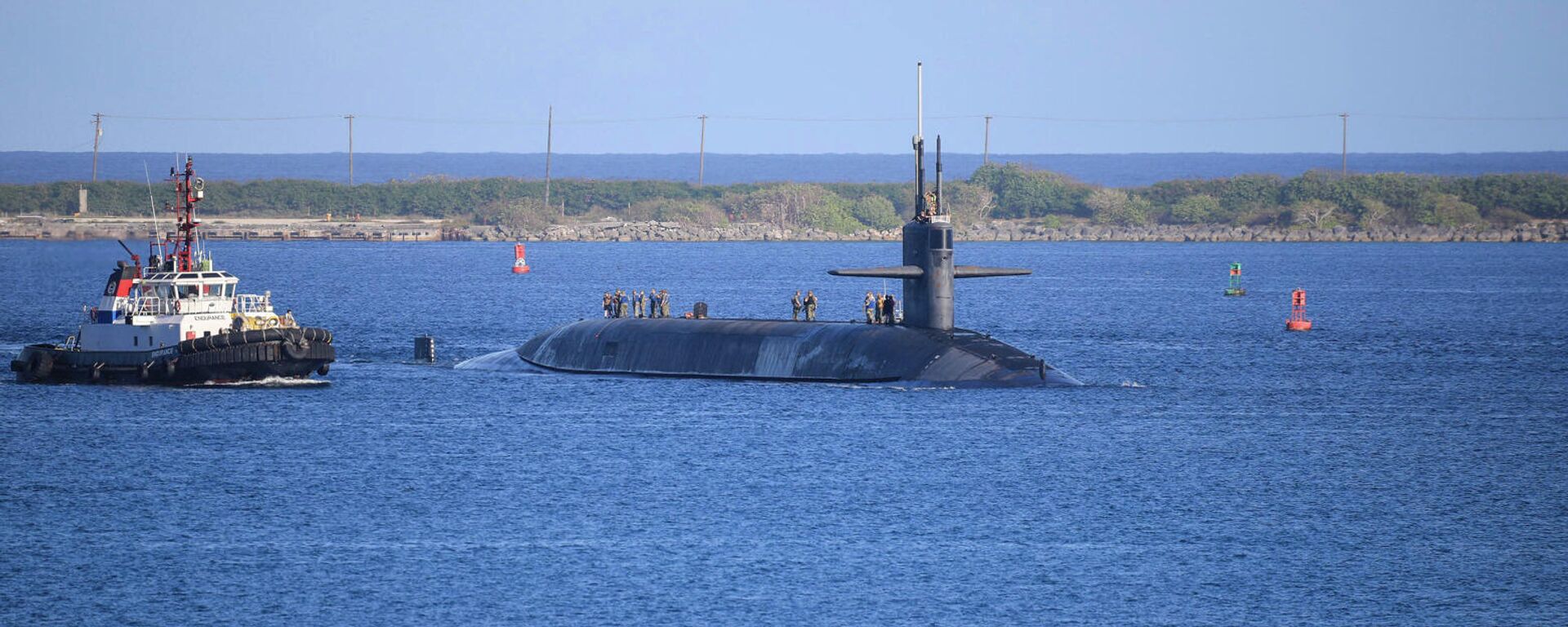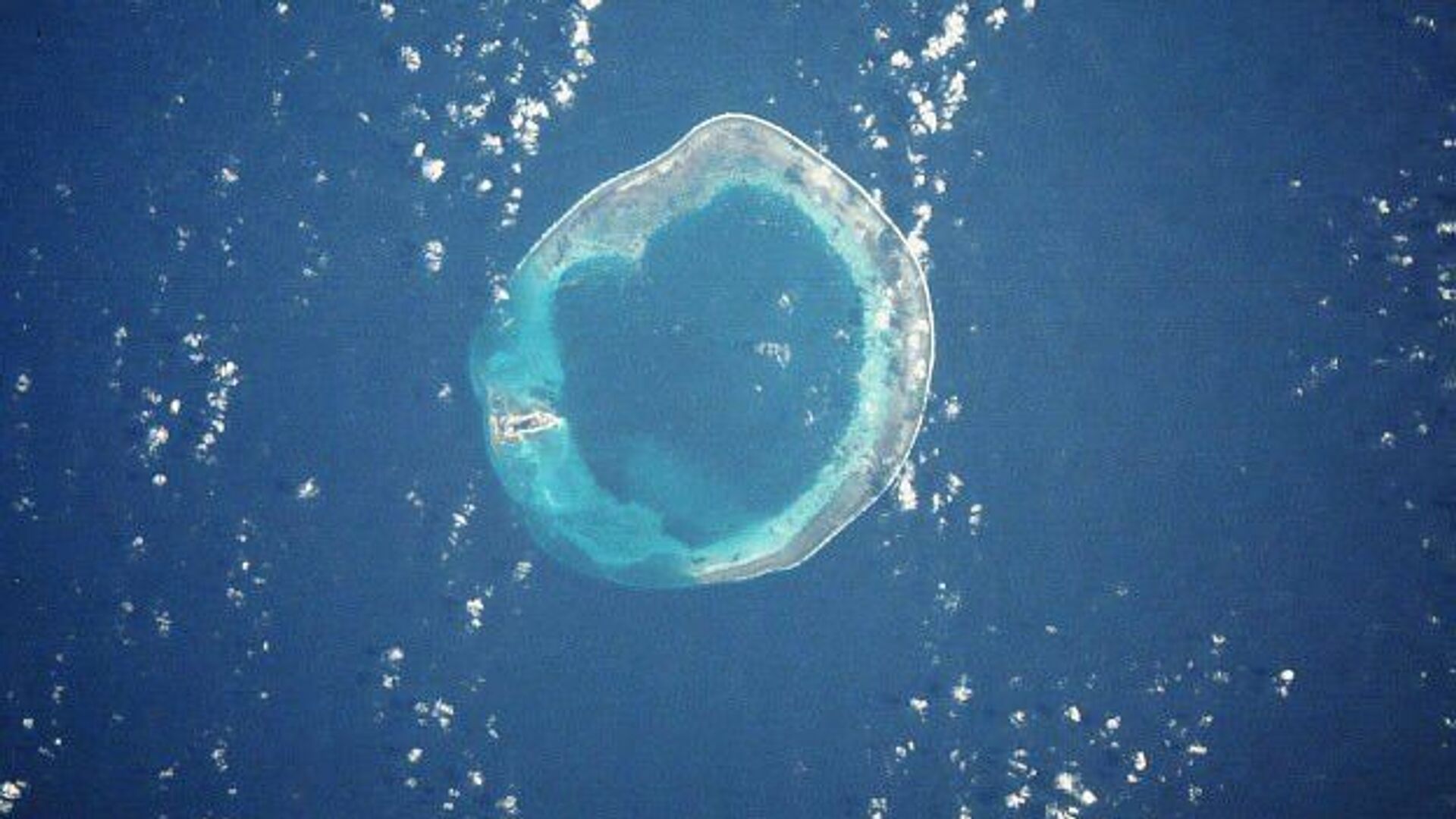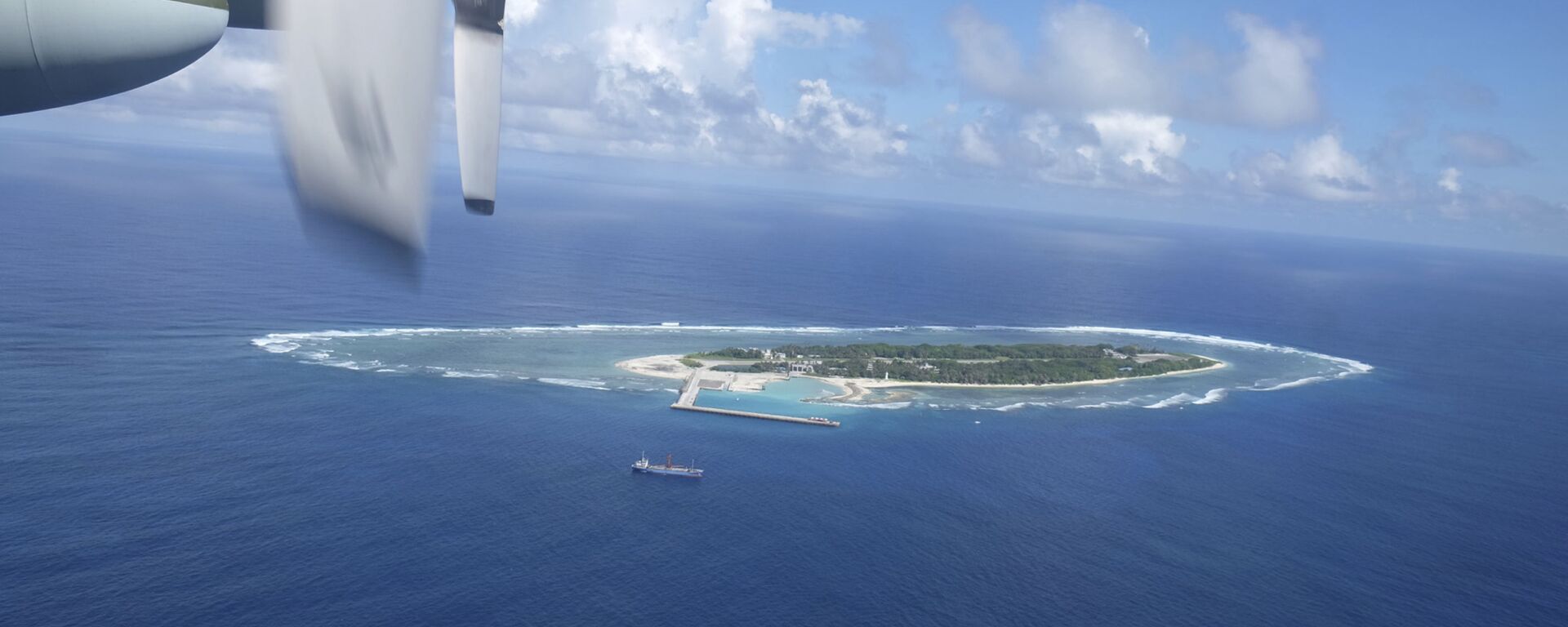https://sputnikglobe.com/20220322/beijing-asks-us-to-stop-sowing-discord-flexing-amid-admirals-claims-of-south-china-sea-buildup-1094092839.html
Beijing Asks US to Stop ‘Sowing Discord, Flexing’ As Admiral Talks of South China Sea Build-up
Beijing Asks US to Stop ‘Sowing Discord, Flexing’ As Admiral Talks of South China Sea Build-up
Sputnik International
On Sunday, US Indo-Pacific Command chief John Aquilino accused China of undertaking “the largest military build-up since the Second World War,” and accused... 22.03.2022, Sputnik International
2022-03-22T15:52+0000
2022-03-22T15:52+0000
2022-03-22T17:33+0000
china
south china sea
america
militarization
https://cdn1.img.sputnikglobe.com/img/07e4/08/0a/1080125860_0:160:624:511_1920x0_80_0_0_7f0a6c2d1ac83ac5fb4d05afffb23ec9.jpg
China has the right to station military resources as it sees fit in areas over which it has jurisdiction, Foreign Ministry spokesman Wang Wenbin has said.“A sovereign country is naturally entitled to deploy necessary defence facilities on its own territory. It is consistent with international law and beyond reproach for China to do so,” Wang said in a briefing on Tuesday.Wang’s comments follow remarks by Admiral John Aquilino over the weekend accusing the People’s Republic of engaging in a major build-up of its military capabilities on three artificial islands in the South China Sea despite earlier promises by Beijing that this wouldn’t take place. “They have advanced all their capabilities and that build-up of weaponisation is destabilizing to the region,” Aquilino told the AP.Aquilino claimed it was China that was flexing, and dismissed Chinese claims to the region’s waters, islands and airspace. During his interview, the US Navy P-8A Poseidon spy plane he and journalists were traveling in received multiple warnings from the Chinese military to “stay away immediately to avoid misjudgment,” but ignored the messages and continued on its way.Beijing claims about 90 percent of the South China Sea – a strategic body of water that serves as a key trade route and is rich in energy and fishing resources. Along with China, parts of the waters are claimed by Vietnam, the Philippines, Brunei, Malaysia and Taiwan.China and regional powers have been holding negotiations aimed at establishing a code of conduct in the region since the early 2000s. In 2010, the Obama administration classified the South China Sea a “matter of US national interest,” and voiced military and diplomatic support for regional nations in their claims against Beijing, including through “freedom of navigation” deployments of warships which are deliberately sailed through territories claimed by the PRC.
https://sputnikglobe.com/20220117/us-boomers-guam-trip-tells-china-it-cant-do-much-about-100-nukes-parked-on-doorstep-media-says-1092325138.html
https://sputnikglobe.com/20220321/us-navy-admiral-claims-china-has-turned-three-islands-in-south-china-sea-into-military-bases-1094038528.html
china
south china sea
Sputnik International
feedback@sputniknews.com
+74956456601
MIA „Rossiya Segodnya“
2022
News
en_EN
Sputnik International
feedback@sputniknews.com
+74956456601
MIA „Rossiya Segodnya“
Sputnik International
feedback@sputniknews.com
+74956456601
MIA „Rossiya Segodnya“
china, south china sea, america, militarization
china, south china sea, america, militarization
Beijing Asks US to Stop ‘Sowing Discord, Flexing’ As Admiral Talks of South China Sea Build-up
15:52 GMT 22.03.2022 (Updated: 17:33 GMT 22.03.2022) On Sunday, US Indo-Pacific Command chief John Aquilino accused China of undertaking “the largest military build-up since the Second World War,” and accused Beijing of beefing up three of its artificial islands in the South China Sea with anti-ship and anti-aircraft missile systems, laser equipment, jamming devices and fighter jets.
China has the right to station military resources as it sees fit in areas over which it has jurisdiction, Foreign Ministry spokesman Wang Wenbin has said.
“A sovereign country is naturally entitled to deploy necessary defence facilities on its own territory. It is consistent with international law and beyond reproach for China to do so,” Wang
said in a briefing on Tuesday.
“I need to point out that the US has been enhancing military deployment around the South China Sea in recent years and has frequently sent warships and military aircraft on a large scale for provocative purposes, which gravely threatens the sovereignty and security of littoral countries and undermines sound order and navigation safety in these waters. We hope the US will stop sowing discord and flexing its muscles in the South China Sea, and play a constructive role in maintaining regional peace and stability,” he added.
Wang’s comments follow remarks by Admiral John Aquilino over the weekend accusing the People’s Republic of engaging in a major build-up of its military capabilities on three artificial islands in the South China Sea despite earlier promises by Beijing that this wouldn’t take place. “They have advanced all their capabilities and that build-up of weaponisation is destabilizing to the region,” Aquilino told the AP.

17 January 2022, 17:02 GMT
Aquilino claimed it was China that was flexing, and dismissed Chinese claims to the region’s waters, islands and airspace. During his interview, the US Navy P-8A Poseidon spy plane he and journalists were traveling in received multiple warnings from the Chinese military to “stay away immediately to avoid misjudgment,” but ignored the messages and continued on its way.
Beijing claims about 90 percent of the South China Sea – a strategic body of water that serves as a key trade route and is rich in energy and fishing resources. Along with China, parts of the waters are claimed by Vietnam, the Philippines, Brunei, Malaysia and Taiwan.
China and regional powers have been holding negotiations aimed at establishing a code of conduct in the region since the early 2000s. In 2010, the Obama administration classified the South China Sea a “matter of US national interest,” and voiced military and diplomatic support for regional nations in their claims against Beijing, including through “freedom of navigation” deployments of warships which are deliberately sailed through territories claimed by the PRC.



